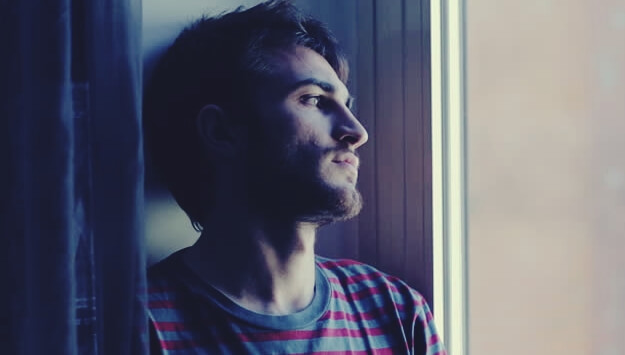When Melancholy Takes Over


Written and verified by the psychologist Valeria Sabater
Nothing about melancholy is poetic or evocative. It’s just a huge void. It’s a yearning for the past the completely blurs the present. The characteristics of melancholy are stillness, tiredness, and physical exhaustion to the point where it creates a sub-type of depression that can be very serious.
Victor Hugo said that melancholy is the happiness of being sad. Stendhal also thought that those who were dedicated to writing, painting, or poetry were more prone to melancholy. This emotional state has always been linked to creativity. That deep and profound side of us uses sadness to its benefit.
“Melancholy is a mist of sadness that covers everything.”
-H.G. Longfellow-
Romantics thought that, without melancholy, the pen was out of ink. However, what artists forgot was that the Greeks coined the term for what we now know as depression. It was Hippocrates who suggested that melancholy was an excess of black bile that made a person feel discouraged, scared, sad, etc.
Later on, Sigmund Freud deepened this idea and gave it an authentic clinical diagnosis. Melancholy, therefore, is not mere sadness. And it’s not a catalyst that inspires art. Melancholy is a meteor called depression that can collide with your planet and destroy everything.

When melancholy knocks on your door
We all get sad sometimes. We look back over all that has happened and the present seems pretty bad. Luckily, it usually only lasts for a little while and then we’re back to our old selves. Moreover, psychologists remind us that, although sadness often has a halo effect that seems to cover everything, there’s usually still room for other emotions and thoughts.
Now, when melancholy sets in, it leaves room for nothing else. You experience no pleasure, curiosity, nor other interests. In fact, Silber, Rey, Savard, and Post (1980) defined the state of melancholy as “affective inaccessibility”. That is, the person is unable to feel any emotion at all, including sadness. It’s a complete change in the person’s emotional structure.
It’s also worth noting something really important. In the DSM-5 (Diagnostic and Statistical Manual of Mental Disorders), melancholy is described as a sub-type of major depression. Some don’t agree with this classification and consider it a separate affective disorder. Be that as it may, it’s clearly a depressive disorder with its own characteristics. Let’s take a look at some of them.

What are the symptoms of melancholy?
We touched on this a moment ago. The main symptom is the inability to feel emotion. There is no pleasure and no interest. There are also none of the usual symptoms of sadness like crying or anguish. Melancholy is stillness. It’s an emptiness and a constant longing for something you can’t put your finger on.
- There’s also evidence of a decrease in psychomotor functions which causes difficulty in thinking and physical and mental exhaustion.
- Another common characteristic is the patient’s inability to explain what they’re feeling. They can’t express with words what’s happening to them or why they feel or don’t feel.
Another thing that makes this condition different from other types of depression is the inability to think. In other depressive disorders, patients experience a lot of nervous, obsessive, and exhausting thoughts. Sometimes these thoughts turn suicidal. This doesn’t happen with melancholy.
In the words of psychologist Giovanni Stanghellini, “If major depression is a shipwreck with a spectator, melancholy is a shipwreck without a spectator”. That is to say, while a depressed person usually tries to figure out why they feel that way, a person with melancholy doesn’t even question it. They feel nothing at all.

Melancholy and therapy
Therapy for a person with this condition will depend on the diagnosis. As we know, there are many types of depression. The psychologist must decide if the patient is suffering from major depression, bipolar melancholic depression, Cotard delusion, or a delirious or non-delirious melancholy.
Treatment is determined on a case by case basis. The professional must decide what’s best for each individual patient. In most cases, the root of the problem is biological. That being the case, most patients respond well to pharmacological treatments. Cognitive behavioral therapy also produces good results. In more serious cases, other psychiatric treatments and constant follow up are necessary.
Melancholy affects about 2% of the population. Luckily, most people usually respond well to the treatments and become their old selves in no time.
This text is provided for informational purposes only and does not replace consultation with a professional. If in doubt, consult your specialist.








